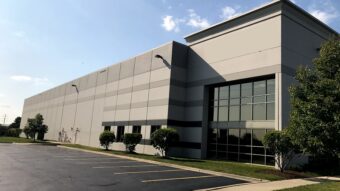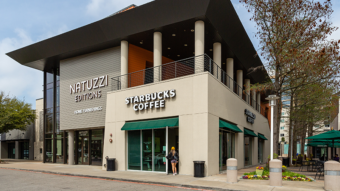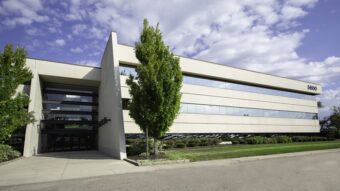Microsoft, Oracle and a host of financial firms gobbled up big swaths of space in data centers across the Chicago market in 2016. These users helped make Chicago the third-busiest market for data center activity last year, according to the latest research from JLL.
JLL reported that the Chicago data center market absorbed 56 megawatts last year. That’s a big number – JLL measures data center absorption in megawatts, not square footage – behind only to the Northern Virginia and Northern California markets and just ahead of Dallas-Fort Worth and the Pacific Northwest.
No other Midwest market made JLL’s data center list.
Sean Reynolds, managing director and co-leader of Midwest Chicago Data Center Services with JLL, said that users are seeking data center space in Chicago because of the city’s prime location in the center of the country.
“First and foremost, Chicago’s geographic diversity is attractive to users,” Reynolds said in a phone interview. “Historically, a lot of data centers have been located in Northern Virginia, Dallas and California. But Chicago has a huge population and we are in the center of the country. That geographic diversity is big for cloud companies that are looking to get closer to big population centers.”
Chicago also boasts a strong infrastructure that is perfect for data centers, Reynolds said.
“Historically, we are one of the most connected markets in the middle of the country when it comes to fiber optics,” Reynolds said. “We have a long history of financial services here that has always been on the edge of technology. Users can quickly reach their customers because of the infrastructure and fiber that we already have in the Chicago market.”
Finally, the utility pricing in the Chicago area is competitive when compared to other major North American markets, Reynolds said. Reynolds said that the Chicago area is below the national average when it comes to costs per kilowatt hour.
“That component of data center operating expenses can be huge,” Reynolds said. “If you can get that 5 percent or 10 percent lower than the average, it can mean a lot to an end user over a 10-year period.”
It’s little surprise, then, that JLL reports that large data center operators such as T5, CyrusOne, Digital Realty, DuPont Fabros, EdgeConnex and Equinix all made significant investments in the Chicago area last year.
And the good news? JLL expects data center activity to remain strong during the next 12 months. That’s because users will feel pressure to deliver more data at ever-quicker speeds.
Reynolds said that 2016 was a record year for Chicago from an absorption standpoint. The 56 megawatts absorbed was a high-water mark for the Chicago market, he said. “Looking forward to 2017, we think this will continue at a very high level,” Reynolds said. “There is a little bit of ‘you build it and they will come.’ The big cloud providers, companies like Microsoft, Google, Oracle and Salesforce are all competing with one another. They quicker they can get a facility up and running, the more likely they are to look at a particular building. We have seen some of the major data center REITs and private-equity-backed data center developers looking hard at the Chicago market.”
The entire data center market, of course, is thriving today. That’s largely because the demand for cloud services is far from lessening.
There’s also another trend, though, that is playing a role in the growth of data centers. Reynolds said that more users are moving away from funding, building and owning their own data centers. There is too much risk with this approach; it’s difficult for these users to project accurately what their data center needs will be two or three years down the road because technology changes so quickly.
The better choice for so many end users today? Co-location, where they share space in existing data centers.
“Enterprise users find that the co-location model is more flexible,” Reynolds said. “It can ebb and flow with their needs as a tenant. We see more Fortune 1000 companies growing more comfortable with this model.”
Reynolds said that the Chicago area will also see a growing number of corporate-owned data centers hit the market for sale in 2017. Many of the area’s large corporations have seen their tech needs – thanks to the popularity of cloud computing – evolve, meaning that they no longer need as much data center space. Others no longer want the capital-intensive burden of owning a data center.
Expect, then, to see data center REITs buying these data center assets in 2017 and keeping those corporate users as tenants in sale-leaseback arrangements, Reynolds said.
What about the rest of the Midwest? Are there other strong data center markets in the region? Reynolds said that Minneapolis ranks as the second-strongest data center market in the Midwest, while other Midwest markets, such as St. Louis, have pockets of concentrated data center activity.
But none of these other Midwest markets can compare to Chicago when it comes to overall data center activity, Reynolds said.
“When users want to be in the center of the country, they are usually going to pick Chicago,” Reynolds said. “Chicago is the most mature of the Midwest markets and it has a good supply of space. Instead of waiting for something to be developed in one of the younger markets in the Midwest, most users will simply go to Chicago. Chicago is big enough and robust enough to satisfy that demand.”



